TED Talk of the Week: Tricia Wang
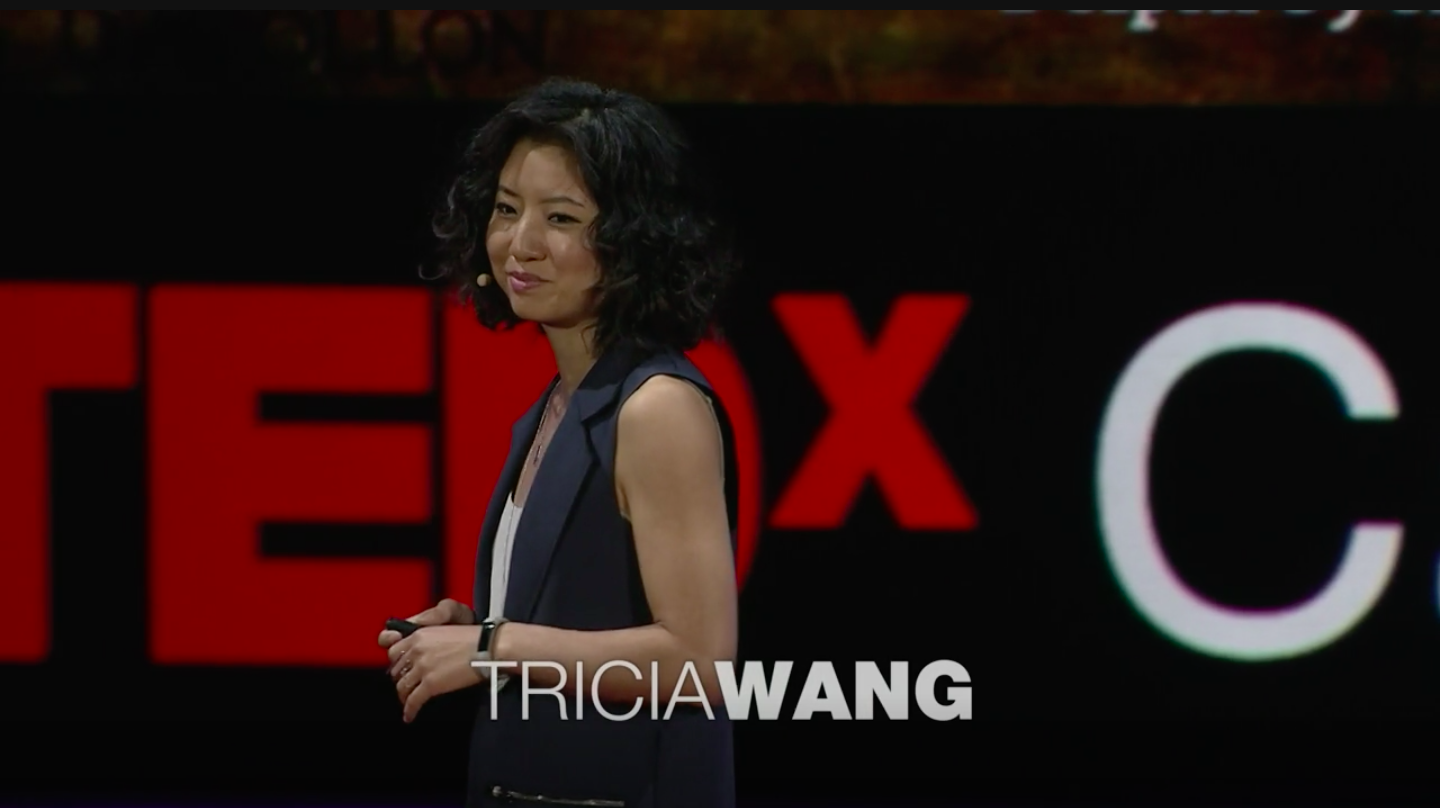
Welcome to our Weekly TED Talk series. We’ll choose a new presentation each week to break down using our presentation concepts from The Big Fish Experience. First, we give you a quick look, followed by more specific insights, and end with some takeaways. Let us know what you think about the speech in the comments, or suggest a TED Talk for us to analyze in a future article.
At a Glance
The Speaker: Tricia Wang
The Topic: The human insight missing from big data
Who Should Watch and Why: Strategists, Tech Developers, Economists, and Ethnographers. Tricia Wang analyzes human interaction with technology to advance how companies use technology to serve people, and to predict tech trends.
Strengths of the Presentation: Slide Design and Structure
The Speaker
Tricia Wang is a co-founder of Constellate Data and a technology ethnographer. She studies the way in which people interact with technology to better understand technology solutions for companies and to predict trends in technology needs. Wang understands that quantifiable, number-driven information, known as big data, alone cannot predict human behavior and desire.
The Topic
“The human insight missing from big data.”
Wang begins with a subject that seems completely off topic, the oracles of ancient Greece. These women were sought out as seers of the future, to predict the outcomes of wars or to detail the best political strategy for an emperor. She relates the oracles to the newer oracles of our time, big data machines such as Watson or Deep Learning. However, she explains that many companies have found that the cost of big data and its ROI are incongruent. She gives the example of Nokia believing that smartphones would be a passing trend because they were relying on big data that did not consider changes in human interactions with new technology. As a technological ethnographer, Wang studied the behaviors of a small group of some of the poorest people in China and discovered that even the poorest people wanted smartphones. Nokia ignored her “small data,” and has since all but disappeared from the market. Wang’s big idea is that big data isn’t useless it just depends on human insights.
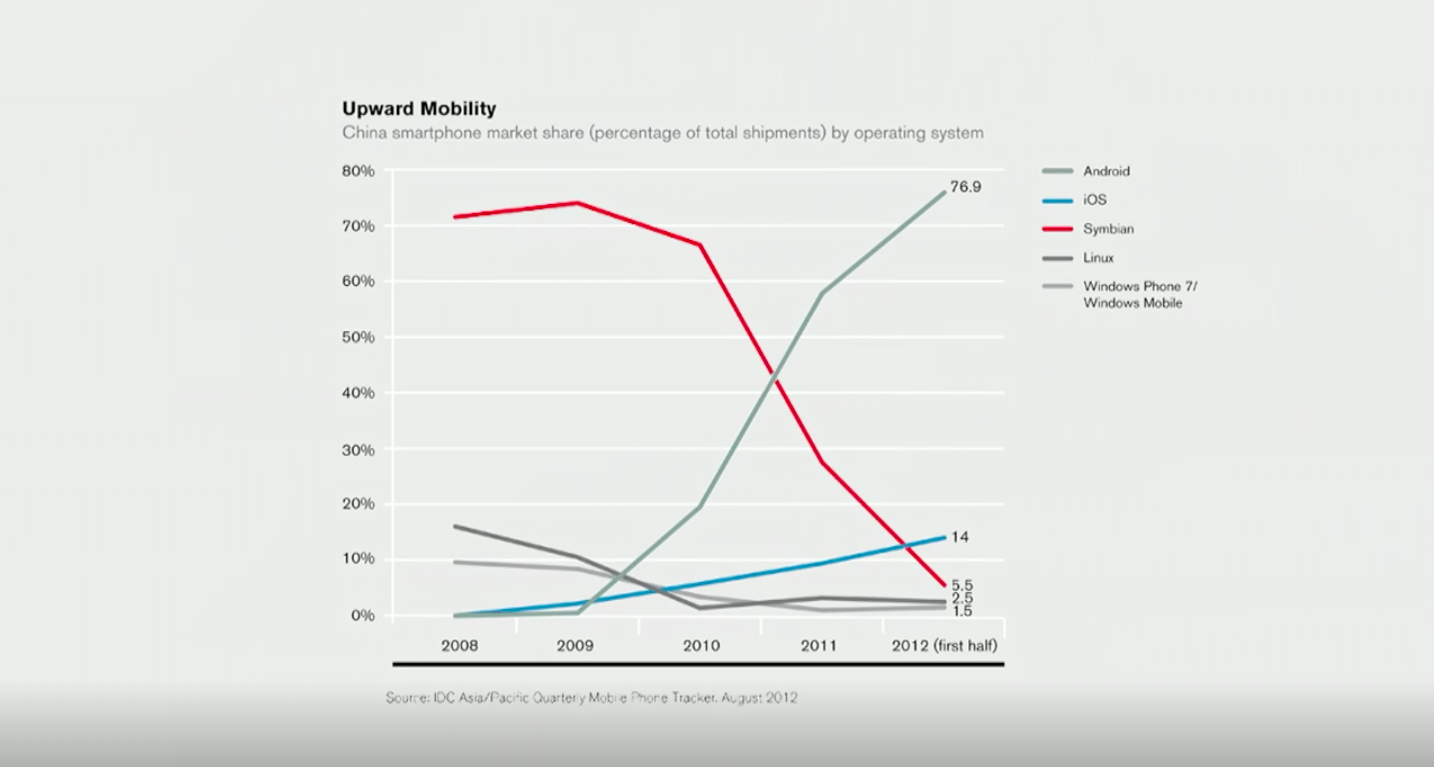
This dramatic, easy to understand graph clearly demonstrates Wang’s point about Nokia’s mistake.
Who Should Watch and Why
Even if you don’t work for a company that uses “big data,” chances are that as a strategist, tech developer, or economist you work with market trends and statistics to make decisions and plan the trajectory of your company. Through comparisons of our new understanding of how the oracles of ancient Greece “worked” and examples such as Nokia’s fall from leading the cellular device market, Wang provides some great insights into why you shouldn’t ignore details, the smaller, unquantifiable data of human emotion. Numbers don’t lie, they just don’t tell the whole truth.
Strengths of the Presentation
Wang’s slides are impactful for two reasons. First, the slides are simple. From paintings of the oracles, to graphs of drastic changes in market value, to one key point over a dark background, the slides are easy to read and understand. Second, the slides maintain a theme. Wang’s company is Constellate Data. It’s no coincidence that most of her slides include pictures of the stars and even specific constellations. Not only does this relate to the name of her company, the juxtaposition between a wide capture of all the visible stars in our universe and close-up of a small grouping of stars in a constellation demonstrates the point she is trying to make about the difference between “big data” and what she calls “thick data.” The slides do more than repeat information; they support her speech with concrete visualizations of her ideas. (For more about design, check out our chapter “What Makes a Good Slide?” from The Big Fish Experience.)
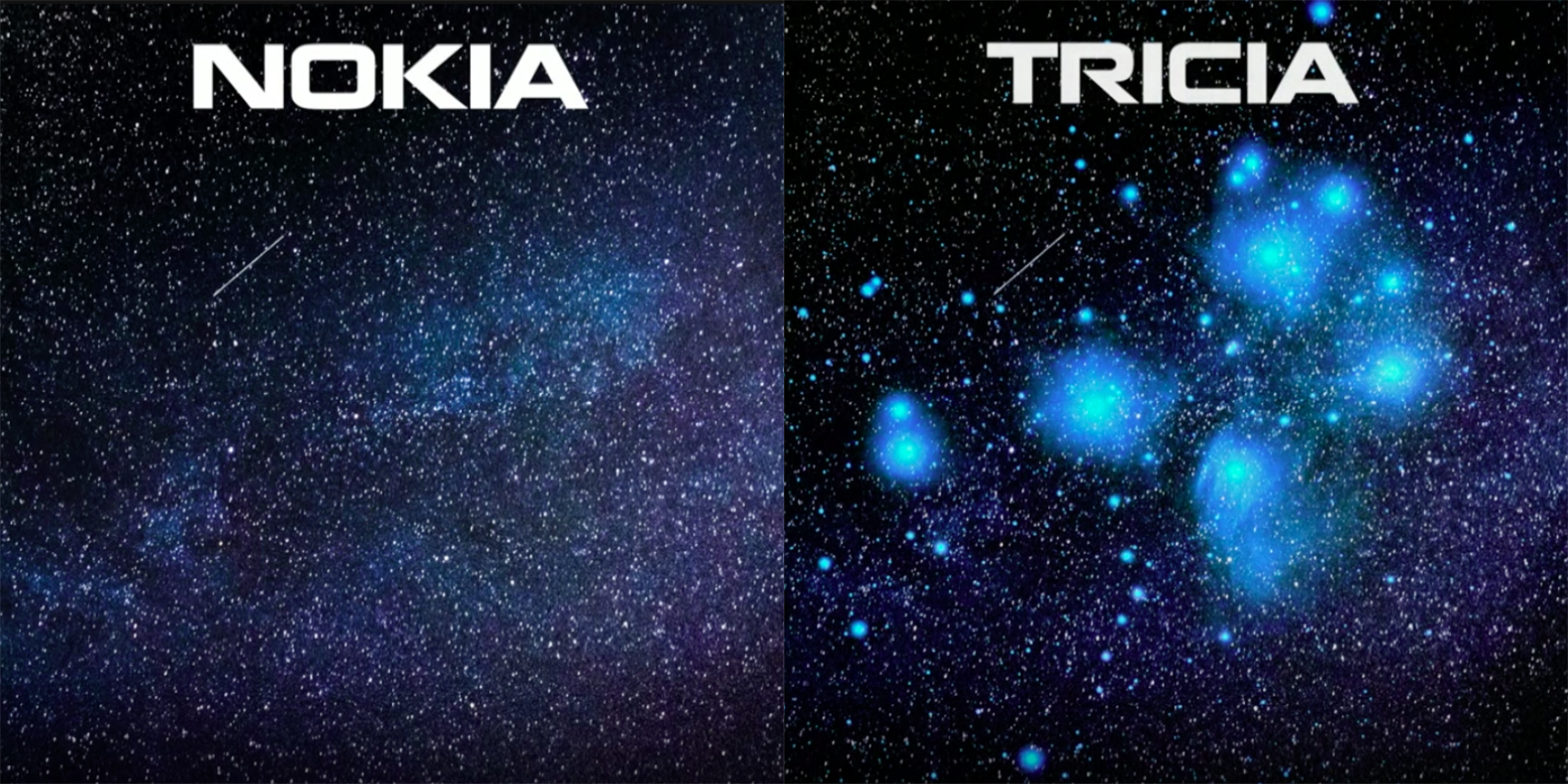
The juxtaposition of these two slides illustrates the difference between big data and Wang’s own, more focused approach.
At first, the story about the oracles of Greece seems to be just a clever way to begin her speech. It doesn’t have much to do with big data or statistics, other than that both are used to predict. However, Wang structures her speech to return to the story with new information. She explains that the oracles were poisoned by gases emitting from faultlines and that the men standing around her interpreted her hallucinatory mumblings. But the interpreters also asked the visitor, the one seeking advice, specific and personal questions. Basically, the interpreters were ethnographers, studying the visitor’s behavior to “interpret” the oracle’s predictions. Wang’s use of this is two-fold, story and structure. She tells a story, but the way she tells it, the structure, provides more meaning to her big idea because this new revelation about the oracles being high on methane gases was only discovered due to human insights, which somewhat parallels her big idea. Stories lose meaning if they aren’t structured with the best impact in mind. Think of The Sixth Sense. If we knew the truth from the beginning, the movie wouldn’t be as talked about as it is today. (Check out the section about outlining your speech in this blog.)

These slides, the first appearing at the beginning of the presentation and the other at the end, depicts an oracle of Greece and the faultline on which her temple stood.
Some Things to Avoid
While Wang’s slides are very effective in theme and clarity of ideas, the background images for some of the slides are poor quality, which detracts from the overall experience. Be sure that your image files are high enough quality for the screen on which they will be presented.
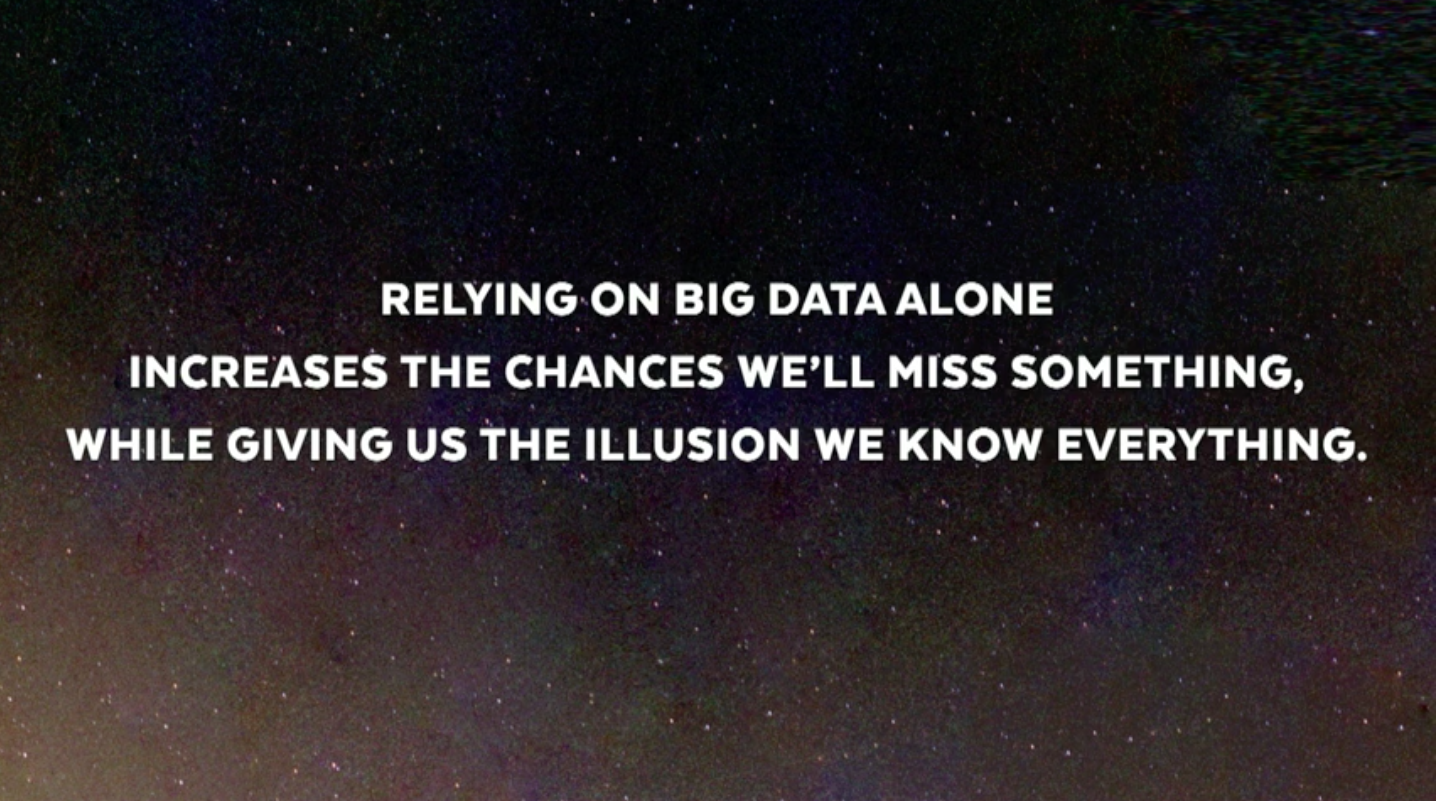
While the resolution of this slide does not affect the readability of the information, the background is pixelated and blurry.
Takeaways
- Use simple, easy to understand slides
- Maintain theme with your presentation
- Plan structure that helps develop an idea throughout
- Be sure the images you use are high quality and meet the resolution needs of the screen
- Make everything about your big idea
For more TED Talks of the Week and more insights into presentations and public speaking, subscribe to our blog and follow us on Facebook. Share your thoughts in the comments, or make a suggestion for a future Weekly TED Talk.
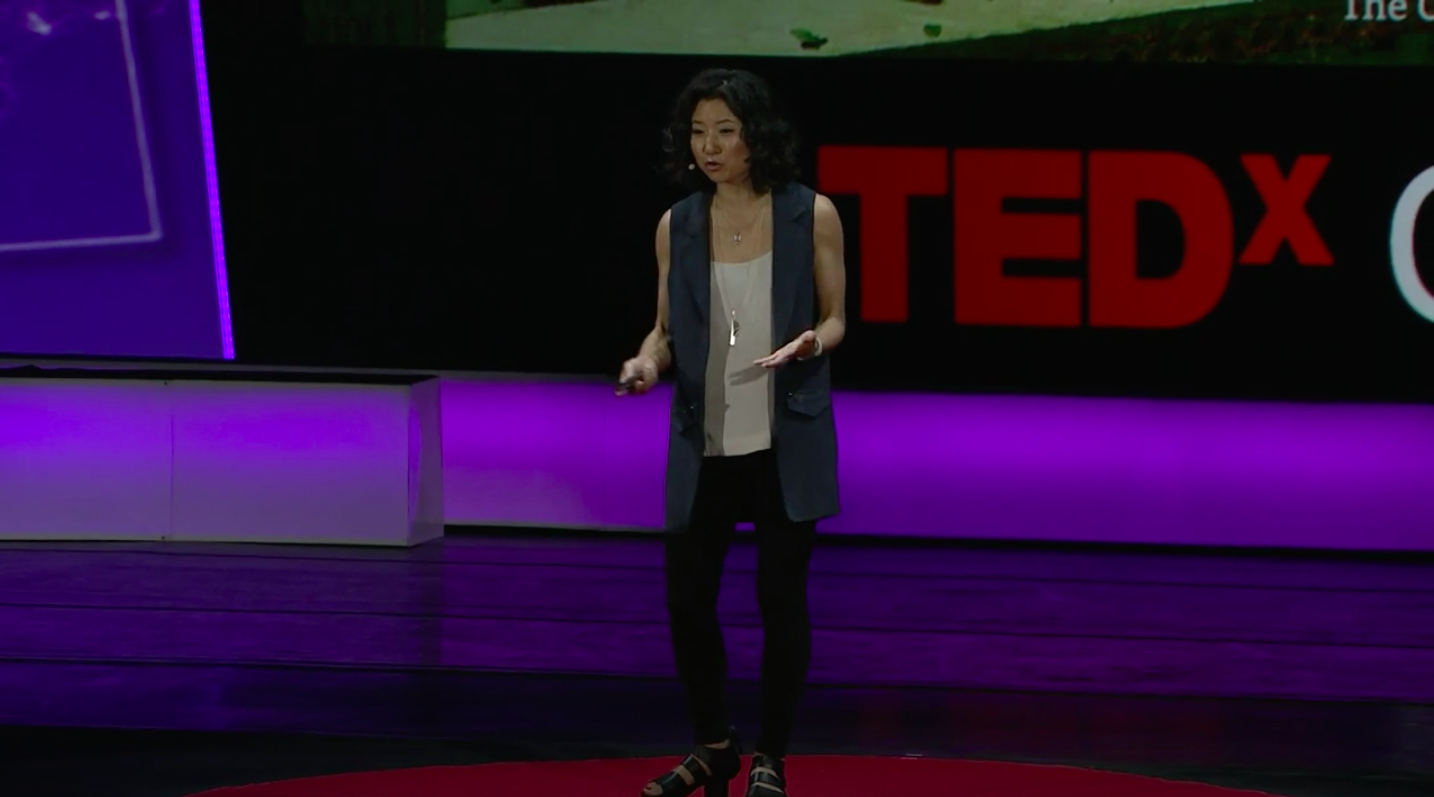



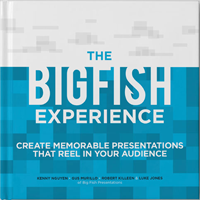
Share your opinion.